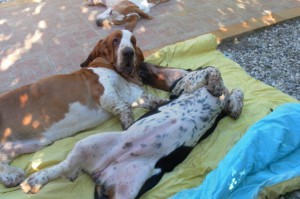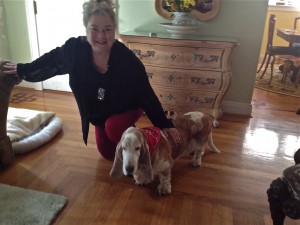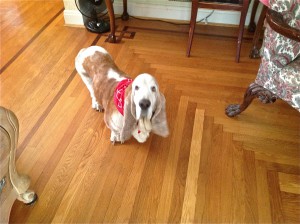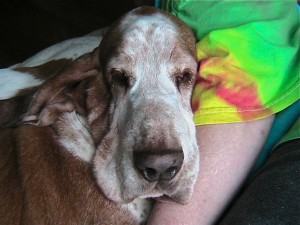DAWN SMITH
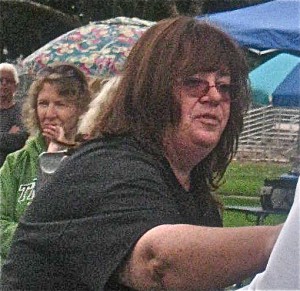
5-1-12 – Please read this note first before you proceed with this forum topic…..
By continuing to read on this forum you agree to the following:
You are at least 18 years old and understand that what I write are my opinions unless stated as facts.
If you are a troll (which you agree is up to my sole determination) then you will not be given the privacy I believe all readers should have and you agree that your full name, ip, location, family information, and any other information I obtain about you will be made public on this site or any other I choose, including my blog. Nothing I learn about you will be sacred and it will all be published. (You know who you are)
This policy may be changed at any time and you agree to comply with those changes.
THINK before you read here. Trolls will not be tolerated and I get really pissed off when I have to spend extra time dealing with them.
NOW CARRY ON AND LEARN! THIS TOPIC IS CHOCKED FULL. PLEASE DO NOT THINK YOU CAN SKIM THROUGH IT. IT IS IMPORTANT INFORMATION AND A REAL LESSON FOR THOSE OF YOU THINKING ABOUT DONATING TO ANY ANIMAL RESCUE. I ALWAYS SAY, “DO YOUR RESEARCH”. AS YOU CAN SEE, I AM DOING MINE.
(November 11, 2009) – First posting…
I am just wondering, how is BaRNI related to Daphneyland? There always seems to be so much drama! Can anyone explain to me how these two are related? Just last night, 11-9-09 there was an AP release. Here it is! Make sure you go to see other comments at the bottom…
Learn how Daphneyland was bought for over a half million dollars and what you donate pays that mortgage. Learn who bought Daphneyland. Then you can decide for yourself how to donate.
The basset hounds at Daphneyland aren’t the only ones with long, sad faces.
Donations to the nation’s largest basset hound rescue have never been so low, bills so overdue, the need so crucial or the help so thin, said Dawn Smith, Daphneyland’s president and founder.
Every day, she looks at 100 basset hounds and wonders how she will feed them, heal them, bathe them, keep them warm or even give them a drink of water.
“We are bringing in $5,200 a month in donations and we need $10,000 to survive,” Smith said.
Animal rescues and shelters have suffered during the recession, particularly in states like California, Florida, Nevada and Arizona where the real estate boom busted the loudest, said Stephen L. Zawistowski, executive vice president for national programs and science adviser for The American Society for the Prevention of Cruelty to Animals.
Based on real estate industry numbers and pet ownership figures, the ASPCA estimates 1 million to 2 million pets have been abandoned since the recession began in December 2007.
Rescues are no-kill organizations that rely on adoptions, donations, grants and volunteers to house animals, while shelters _ kill and no-kill _ depend on city or county budgets to pay employees and operate their facilities.
As the economy worsened, governments cut back on funding for shelters and charitable donations for rescues dried up. At Daphneyland, donations are down 40 percent, the rescue is full, volunteers have had to quit to take a second or third job or move out of the area to find work and bills keep going up.
“At pet food banks, they are seeing people who used to be donors now showing up asking if they can get a bag of dog food,” Zawistowski said.
Conditions will only get worse during the holidays, Smith said.
People who got dogs during the summer want to go home for the holidays and can’t afford to board their pets or take them along, so they dump them. And it’s the worst time of year for adoptions because the failure rate is so high. People adopt puppies because they are so cute, but Christmas and cuteness pass.
At Daphneyland (named after the hound Smith had when the rescue was founded in 2002), Smith said the mortgage is only a month-and-a-half behind so they are not facing foreclosure. The food and vet bills are always the first to be paid.
The electric bill at Daphneyland in Acton, about 50 miles north of Los Angeles, is $1,500 a month. Because it takes electricity to run the well, when the power goes out, so does the water.
On Nov. 3, Smith’s bill was $7,500 past due and the utility turned off the power. It took $3,000, a payment schedule and more than two hours on the phone to get it restored, Smith said.
Unless adoptions pick up, donations increase dramatically or grants become more readily available, Smith doesn’t know how her rescue or those like hers are going to survive.
The ASPCA doesn’t know how many rescues there are around the nation. But it says the country has between 3,000 and 5,000 shelters, which by definition means they receive at least 100 animals a year.
Zawistowski said between 5 percent and 7 percent of pets in a community end up at a shelter each year.
Nationally, between 6 million and 8 million animals go into shelters every year and about half, between 3 million and 4 million, are euthanized. Those numbers are about half dogs, half cats, Zawistowski said, because there are still a lot of shelters that don’t take cats. Of those that do, two-thirds to three-quarters of the animals in the shelters are cats.
Despite the numbers, Zawistowski pointed to unparalleled progress over the last 20 years. In the 1980s, between 20 million and 22 million animals were being euthanized each year, he said.
“No single social welfare group has made a greater impact on a problem than the people working in animal shelters,” he said, adding it has 100 percent to do with spaying and neutering.
There have been other recessions and recoveries, Zawistowski said. So he assumes there will be recovery again, but not without a lot of suffering because pets follow the fate of their people.
New Leash on Life in Newhall, about 20 miles from Daphneyland, announced last month that it was closing after 12 years and 5,000 placements.
A flurry of donations will keep the rescue open for another month while its board of directors works to extend its life and the owners work to find permanent homes for the last 13 dogs at the ranch. A last ditch”Black Friday Auction” is scheduled the day after Thanksgiving, but success depends on items that are donated, according to a letter put out by owners Bobby and Kelly Dorafshar.
Smith, a fourth-generation basset hound owner, is always honest about the dogs.
“They drool, they shed, they snore and they try your patience every day,” she said. The low slung, heavy boned dogs are prone to health problems, especially around their ears and bellies.
“They are stubborn, obstinate, but couldn’t be more loving. They are fabulous if you can handle a 65-pound lapdog.”
End of Release…
Then, I went to the BaRNI website and it was no longer there. It automatically sent me to Daphneyland!
What is going on?
Can anyone tell us?
How is Daphneyland related to BaRNI?
Brew a pot of coffee and get ready to hold on to your money!
www.bassethoundtown.com/forums/index.php?showtopic=630
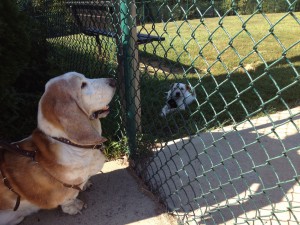
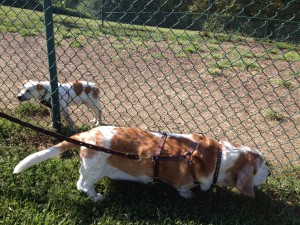
 Comments(10)
Comments(10)






